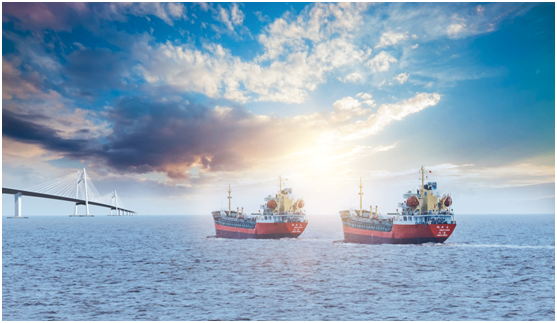With the continuous development of the global economy and the growth of international trade, the international logistics market is undergoing a series of profound changes. These changes can not only enhance transportation safety and the security of goods, but also promote the progress of the industry through digital transformation, green logistics, and regional cooperation.
Image Source:699pic.com
Enhanced Transportation Safety and Goods Transportation Security
By 2025, the transportation safety of major channels and the security of goods transportation will be better guaranteed, and the security assurance capabilities of the international logistics supply chain will continue to improve. With the advancement of technology and policy support, enterprises in various industries are also taking various measures to improve the safety and reliability of the transportation network. For example, some enterprises can predict and respond to potential risks by improving monitoring systems, strengthening physical and cyber security measures, and using data analysis tools.
Reduction of International Logistics Costs
Reducing the logistics costs of the whole society is of great significance for building a new development pattern and achieving high-quality economic and social development. According to the Action Plan for Effectively Reducing the Logistics Costs of the Whole Society, the Chinese government has formulated a series of policy measures aimed at optimizing the allocation of logistics resources across the whole society through structural adjustment and promoting reforms, strengthening the coordinated connection of various logistics links, and comprehensively improving the operational efficiency of the logistics system. This not only helps to reduce the operating costs of the national economy, especially the real economy, but also promotes the improvement of the competitiveness of the manufacturing industry, and further optimizes the layout of major productive forces, driving the formation of a complete industrial ecosystem with nearby supporting facilities for advantageous resources and industries.
Digital Transformation and Technological Innovation
With the extensive application of advanced technologies such as the Internet of Things, big data, and artificial intelligence in the logistics field, new models and business forms of "Internet +" high-efficiency logistics are constantly emerging. For instance, some digital technologies, such as online freight transportation, digital warehouses, and contactless delivery, can achieve real-time sharing of logistics information. The progress of these technologies has greatly improved logistics efficiency, reduced the operating costs of enterprises, and further enhanced the flexibility and response speed of the supply chain.
Sustainable Development and Green Logistics
Globally, an increasing number of enterprises are beginning to attach importance to sustainability issues, and are committed to reducing carbon emissions and adopting more environmentally friendly practices. In China, the Modern Logistics Development Plan for the 14th Five-Year Plan emphasizes that the task of green and low-carbon development is arduous, calling for the promotion of the application of clean energy, the reduction of carbon dioxide emissions, and the promotion of the green transformation of transportation. In addition, relevant policies also encourage logistics enterprises to adopt the circular economy model, reduce resource waste, and improve resource utilization efficiency.
Regional Cooperation and Integrated Services
Strengthening regional cooperation is an important direction for the future development of the logistics industry. The successful operation of the China-Europe freight trains and the opening of the new land-sea corridor from Shanghai, China to Chancay, Peru are important manifestations of regional cooperation, highlighting the importance of cross-border logistics cooperation. Such a closer cooperation mechanism effectively integrates resources from all parties, improves overall operational efficiency, and is also conducive to alleviating the negative impacts brought about by trade frictions.

